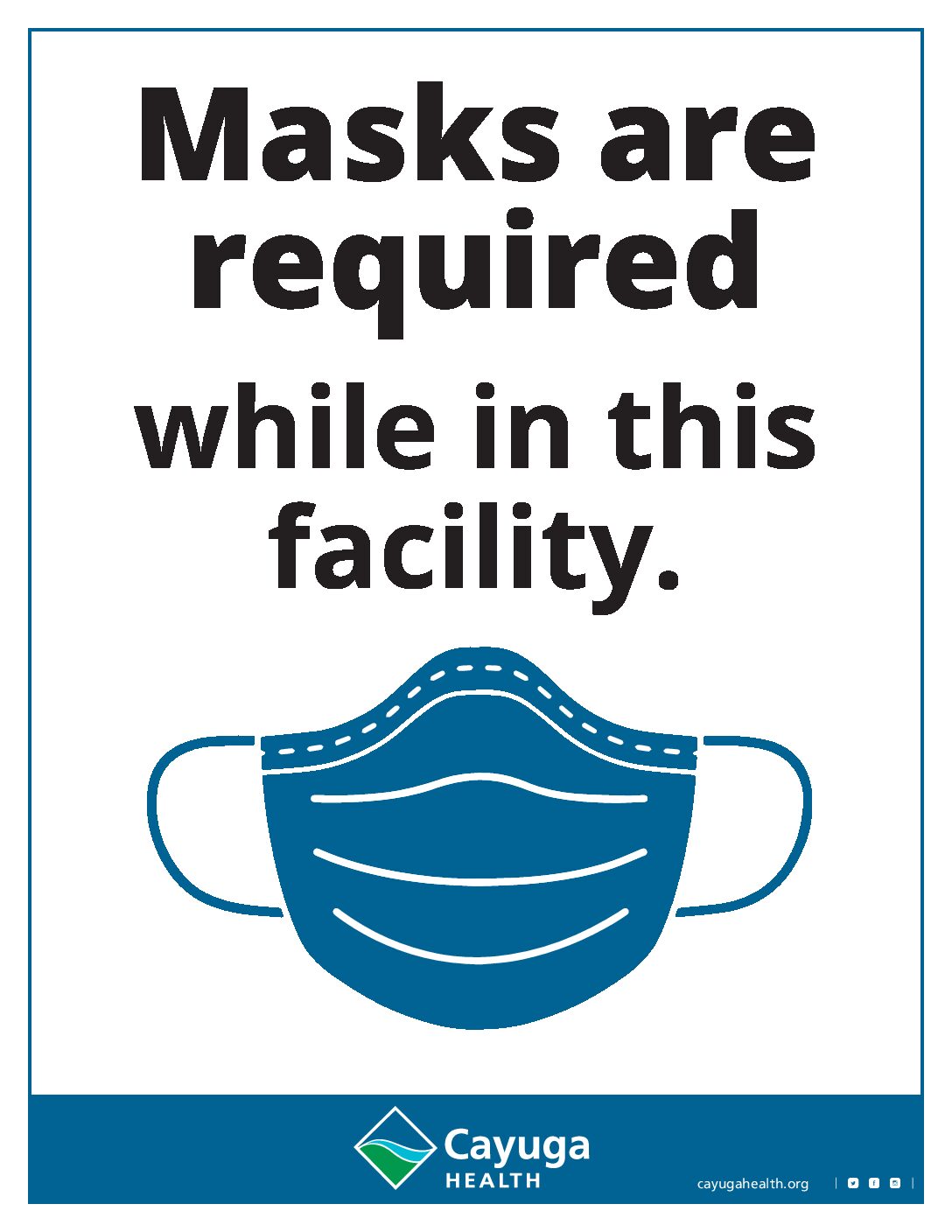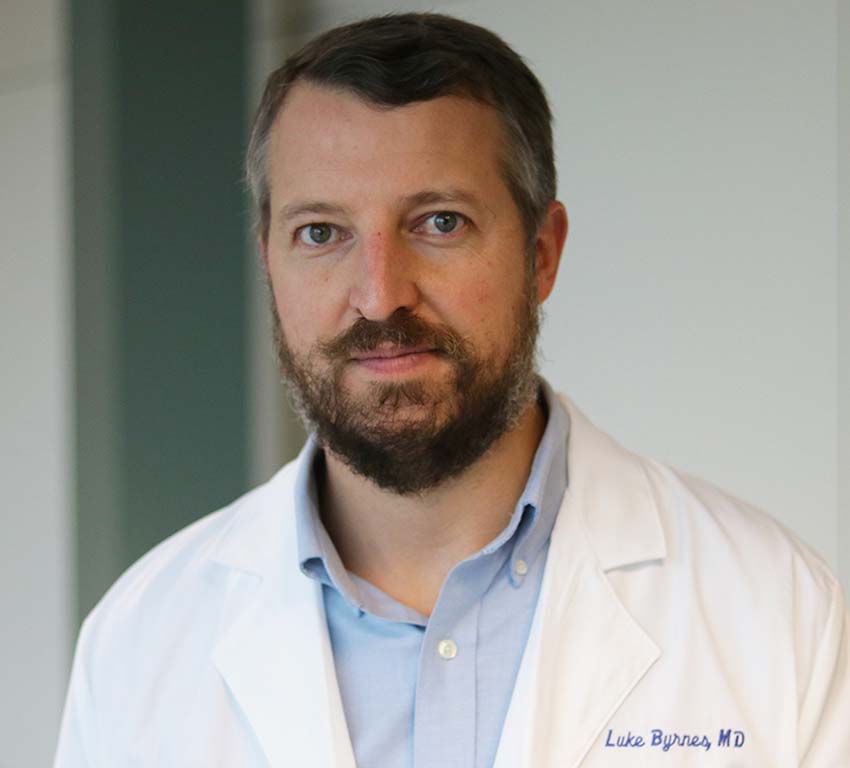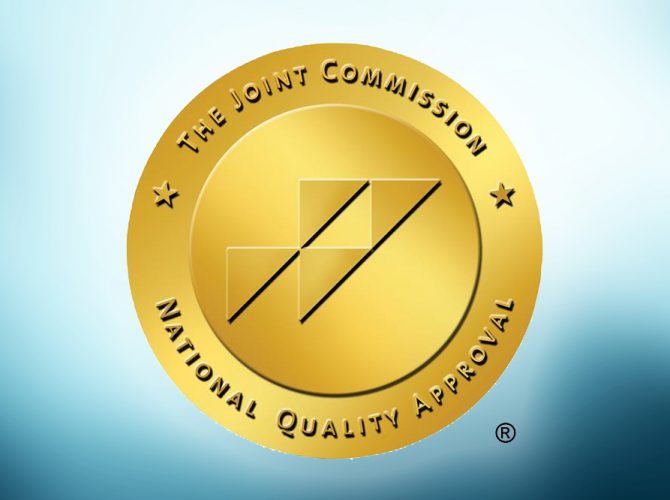
Our lives are filled with many decisions every day, some more crucial and long-lasting than others. The decision to seek immediate medical attention if you or someone you are with might be having a heart attack can actually save a life.
A Race against Time
Jason Lodeski’s mother and brother came to visit over the weekend of July 4, 2015, to help him move from Van Etten to Montour Falls, New York. The move would put the 43-year-old closer to Watkins Glen International, where he works on the maintenance crew. “I had been lifting stuff all weekend and on Monday my shoulders were a little sore,” says Lodeski. “I didn’t think anything about it.”
There was a car club event at the racetrack the following Monday and Lodeski was asked to mow one of the big parking areas. It was an especially hot day, he recalls, and around 10:30 a.m. he stopped mowing. “The pain hit me like a truck in my chest, neck, jaw, and back and I got really dizzy,” he recalls. “I went inside, sat down, and drank some water. The security guard told me I didn’t look good and he called an ambulance.” Because it was an event day at the race-track, ambulances were standing by and EMTs arrived immediately. They performed an EKG and transported him to Schuyler Hospital straightaway.
Lodeski’s family has a history of heart disease. His father suffered his first heart attack at the age of 38 and had three subsequent open-heart surgeries. Nevertheless, Lodeski admits he had no idea that what he was experiencing at the racetrack was a heart attack. “I eat right and take care of myself. I didn’t know I was having a heart attack until I asked someone at Schuyler Hospital,” he says. “They told me that I was having a serious heart attack and that a helicopter would be there in a couple of minutes.”
The type of heart attack Jason Lodeski suffered is called an ST-elevation myocardial infarction (STEMI). These heart attacks are very serious and can be readily identified on an EKG by people who know what to look for. When the ST segment of a patient’s EKG is elevated, it means that the blood flow to a portion of the heart is partially or completely blocked; immediate life-saving action must be taken.
“The people in Schuyler County did a phenomenal job. The EMS crew, the staff in the Emergency Department, and the helicopter crew all responded quickly. It was a very smooth operation,” says Paul Stefek, MD, FACC, FSCAI, director of interventional cardiology at the Cayuga Heart Institute. “They stabilized Jason with aspirin, heparin, and nitroglycerin and got him to Cayuga Medical Center right away. They called us so we could alert the STEMI team. When Jason arrived he was still having a heart attack with active chest pain due to the closed artery. We got him up to the cardiac cath lab immediately and everything went like clock-work.”
Lodeski recalls meeting Stefek right after the helicopter landed. “Dr. Stefek was on the copter pad waiting for me when I arrived. He was explaining the procedure to me as he helped wheel me into the hospital, and he talked to me the whole time he was working on me.”
The procedure that Stefek per-formed is called percutaneous coronary intervention (PCI). The right artery that travels down to the bottom of the heart was 100 percent blocked and required the placement of two stents to restore blood flow. “As soon as Dr. Stefek got the last stent in, it felt like whoosh—the pain totally disappeared,” says Lodeski.
Heart attack diagnosis to heart saving: 83 minutes
From the time the ambulance pulled up to the Emergency Department at Schuyler Hospital to the time the artery in Jason Lodeski’s heart was opened at the Cayuga Heart Institute in Ithaca, only 83 minutes had elapsed. This included stabilization at Schuyler Hospital, helicopter transport to Cayuga Medical Center, preparation for PCI, and restoring blood flow to the patient’s heart. This time interval is significantly better than the national standard of care for the treatment of an acute heart attack.
Recovery
Lodeski went from the cardiac cath lab to the Intensive Coronary Care Unit, where he stayed for two days, followed by one day in the adult medical-surgical unit. His heart attack was on Monday morning; by Friday afternoon he was walking at the racetrack with his family. “My mother couldn’t believe it,” he says. “Dr. Stefek told me I needed to walk every day . . . and we went to the wine fest that weekend.”
At the end of September Lodeski returned to work at Watkins Glen International. He has a new understanding of the genesis of his heart attack, which relates primarily to genetics and family history. Still, he continues to watch his weight, exercise, and avoid processed foods. He consumes lots of fresh produce, chicken, and fish, enjoying red meat only occasionally.
“If you’ve got heart disease in the family, you should get checked regularly, because no matter how well you take care of yourself, you’re at risk,” advises Lodeski.
“I’d been feeling run down for a couple of years. I didn’t realize just how bad it was until after the procedure on my heart. Too bad it took a heart attack to start feeling better, but now I feel great!”
what our patients are saying
“The staff and accommodations at Cayuga Birthplace are amazing!!! This is what it I imagine it would feel like to be a celebrity getting VIP treatment. I wish I could stay longer – even the food options are 5 Star! The amenities are great. Everything is clean and designed beautifully. Not a single complaint, only praises!”
“I have had many occasions visiting CMC for myself and family. We have never had a bad experience there at all. Last October I had surgery and the nurses were amazing especially my night nurse. Thank you to all CMC staff for doing what you do every day with a smile.”
“I have to say the last couple visits that I’ve had here have been wonderful. About a month ago I had an EGD and the staff were amazing! Explained everything in detail and made me feel at ease. I was very nervous and the nurse I had was very comforting. Tonight we had to take my son to the emergency room and they were awesome with him! We got right in. “
“I have been a Hemo dialysis patient for almost Five years. Prior to dialysis and during dialysis I have had several trips to the ER, due to other health issues & was admitted to CMC more than a few times. Each and every time I’ve been there, whether in patient or out, I have been treated with respect, professionalism, and efficiency. I give this hospital 2 thumbs up!! Thank you CMC for taking care of me all these years!!”








